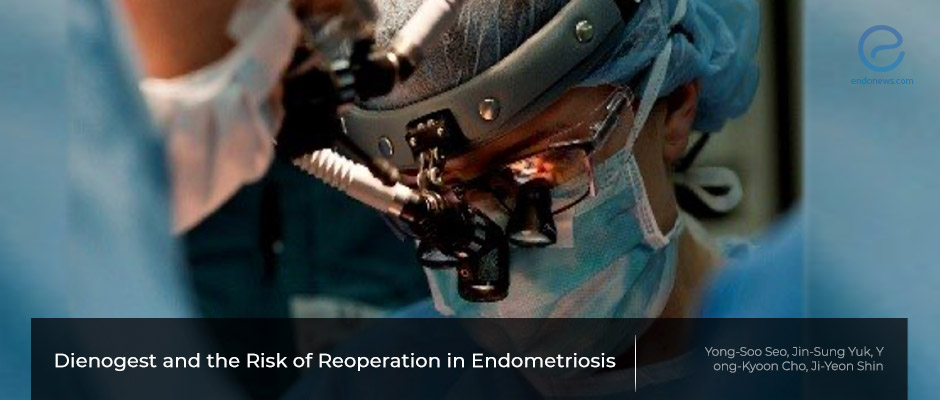Dienogest treatment increases the risk of Endometriosis reoperation rate
Oct 20, 2021
Patients treated with dienogest had a higher reoperation rate when compared to controls.
Key Points
Highlights:
- The reoperation rate is higher for endometriotic patients treated with dienogest, compared to controls.
Importance:
- The risk of reoperation for dienogest users for endometriosis is not well documented in the current literature.
What's done here:
- This is a retrospective cohort study based on 8 years data of Korean Health Insurance Review and Assessment Service.
- All women with the "endometriosis diagnosis code" who used "GnRH agonists" were selected (n=22647), and those patients who were prescribed dienogest comprised the study group (n=10379).
- The authors compared the endometriosis reoperation rates between the dienogest users and non-users (controls, n=12268).
- The reoperation rates; and the effects of the
- site of endometriosis,
- the number of GnRH agonist injections,
- the duration of dienogest intake, on reoperation rate, were statistically analyzed.
Key Results:
- The use of dienogest increased the reoperation rate, by approximately 1.6 times.
- When the patients were divided into subgroups according to the period between the last GnRH agonist injection and the first dienogest dose, the reoperation rate prominently increased from 10 months (>3.8 times, >8.4 times for 13 months).
- The duration of dienogest intake, the site of endometriosis, and the number of GnRH agonist injections did not affect the reoperation rate.
Lay Summary
The common and accepted therapy of endometriosis is surgery, however medical treatment such as nonsteroidal anti-inflammatory drugs, gonadotropin-releasing hormone agonists, oral contraceptives and oral progestins are used for either relieving pain or to prevent recurrences and reoperation. Due to bone loss and menopausal symptoms, the use of GnRH agonists is not recommended for more than six months.
Dienogest (DNG), which is a progestin with or without the combination of estrogens, has recently been used for endometriosis mainly for preventing reoperation. Several reports are present about its success on the reoperation of endometriomas, however, the related data is not sufficient.
To compare the reoperation rate of DNG users to nonusers, Seo YS et al from Inje University, Seoul, Korea, planned this retrospective cohort study using Korean Health Insurance Review and Assessment Service data on more than 72.000 women who had the endometriosis code and prescribed GNRH agonists, and compared the DNG users and non-users in terms of the presence and time of reoperation.
The reoperation rate was higher in patients who had DNG prescriptions, however the duration of DNG intake, the site of endometriosis, and the number of GnRH injections were not associated with the reoperation rate. When the period between the last GnRH agonist injection and the first DNG intake was evaluated, it appeared that the reoperation rate did not increase until 10th month.
The "Journal of Personalized Medicine" recently published this interesting Korean survey.
Research Source: https://pubmed.ncbi.nlm.nih.gov/34575701/
dieonogest GnRH agonist reoperation endometriosis.

